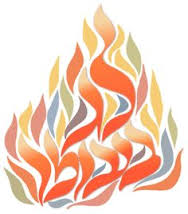 This weekend is Lag Ba-Omer, the 33rd day of counting from Passover to Shavuot. In our parshah this week we find the commandment to count these days:
This weekend is Lag Ba-Omer, the 33rd day of counting from Passover to Shavuot. In our parshah this week we find the commandment to count these days:
You shall count for yourselves – from the morrow of the rest day, from the day when you bring the omer of the waving – seven weeks, they shall be complete. Until the morrow of the seventh week you shall count, fifty days.
It is customary during these 33 days to observe certain mourning rites – there are no weddings, no haircutting or shaving and no performing or listening to live music. The reason for this time of mourning has been attributed to the following story in the Talmud:
It was said that Rabbi Akiva had 12,000 pairs of disciples from Gabbatha to Antipatris; and all of them died at the same time because they did not treat each other with respect. The world remained desolate until Rabbi Akiva came to our Masters in the South and taught the Torah to them. These were Rabbi Meir, Rabbi Yehuda, Rabbi Yose, Rabbi Shimon and Rabbi Elazar ben Shammua; and it was they who revived the Torah at that time. A Tanna taught: “All of them died between Passover and Shavuot.” (Yevamot 62b).
Many different explanations for why Lag Ba-Omer is a day of celebration within this period of mourning have been offered, including that it is on this day that Rabbi Akiva’s students stopped dying and that when, on this day, Rabbi Akiva’s most prominent student Rabbi Shimon Bar Yochai died, he revealed the mystical teachings of the Torah. Rabbi Akiva’s encouragement of Bar Kokhba to lead a revolt against the Romans and bring about the Messianic Age and the ultimate failure of this revolt also contribute to the explanations for mourning and celebration.
None of this however appears in the Torah as part of the commandment to count. Click below to read a piece by Elana Shilling on how counting prepares us for receiving the Torah.
When we keep track of the passing of time, we build up anticipation and we prepare ourselves appropriately. By counting down the days from Passover to Shavuoth, we make each day between these two monumental events, between the Exodus from Egypt and the receiving of the Torah, significant and worthy of remembering.
Shabbat Shalom.












